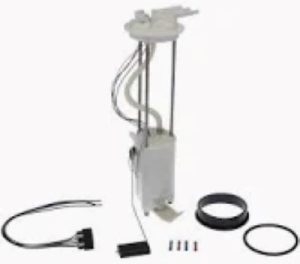A fuel pump controller is an electronic module that finely adjusts the operation of a car’s fuel pump, modulating its speed and flow according to engine demand. In a conventional system, where the fuel pump works at fixed speed, this can help in keeping pump power and energy consumption low every time the engine demands only short pulse-width or low-flow amount. This is expected to cut fuel consumption by about 15% in modern vehicles, particularly under stop and go or low load driving conditions.
Fuel pump controllers do the job of talking with your car's engine control unit (arguably a tablet-style computer that compares real-time mission details from various systems around the motor — for example, engine load, speed and throttle position). This includes reducing the flow rate of the pump to save energy when, for instance, operating at idle or low engine revs. In turn, the controller increases fuel pump output when under heavy acceleration or high-load conditions to keep the fuel pressure from dropping below 40 to 60 PSI, or higher in some high-performance vehicles. This dynamic control also leads to better performance and fuel economy, especially in turbocharged engines where the demand for fuel can increase quickly.

Efficiency is not only the advantage of a fuel pump controller. The controller also decreases the fuel pump speed when running at full pressure to reduce wear and tear on the pump itself, which may increase overall life by 20%. An average fuel pump without a controller can serve up to 100,000 and 150,000 miles but if you add a controller, you would be able to prolong this engine life by reducing unnecessary stress. When you add the controller, it ensures your fuel pressure is optimal by eliminating flow and pressing discrepancies causing engine misfires or even stalling!
A well-functioning fuel pump controller is especially vital in high-performance or racing applications, where a complete understanding and control over a vehicle's fuel delivery is paramount. A car running a turbocharged engine, for instance, might need a fuel pump that can flow more than 255 liters per hour (LPH) depending on how hard the accelerator is pressed. The fuel pump controller ensures appropriate and then optimal operation of the pump, so that fuel is always delivered at the pressure the engine needs with no risk of either starvation or flooding.
This past year, the performance potential of fuel pump controller technology was test at the SEMA Show, where leading manufacturers displayed systems identified to have been in active testing capable of delivering a 10% improvement in vehicle fuel efficiency that has no performance downside. Since efficiency is key with electric and hybrid vehicles, these controllers are now a standard feature, which continues to rise in importance in new automotive designs.
For additional information on Fuel Pump Controllers and how it affect your cars performance just follow the link Fuel Pump.